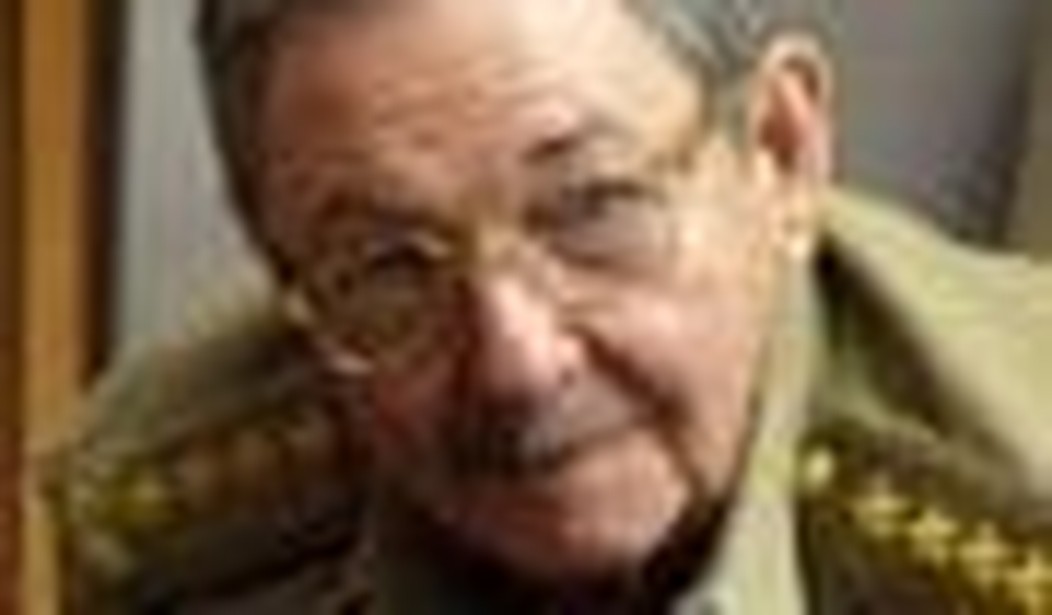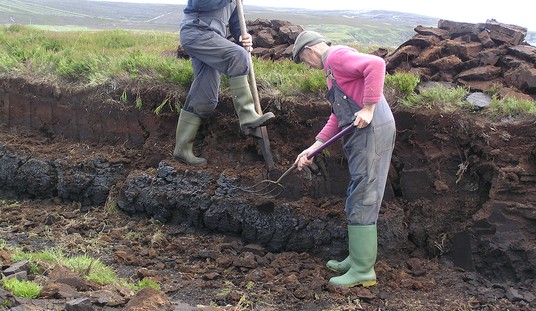Since February’s monarchical succession in Cuba from Fidel Castro to his brother Raul, which was even blessed by the Vatican, press reports of economic reforms and possible economic reforms in that country have been published on an almost daily basis.
The measures that have garnered the most attention from the compliant international media have been the lifting of absurd bans on some consumer goods like cellular phones. The phones, priced at about $200 each, are out of reach for most Cubans who work for the state and earn an average of less than $20 a month.
And speaking of wages, another so-called reform implemented by the substitute tyrant is a modification to Cuba’s rigid salary scale. The communist newspaper Granma trumpeted the remarkable new (for Cuba) concept of “pay in accordance with quality and quantity” of work and the scrapping of salary caps. Now Cubans can theoretically earn more than their counterparts based on their productivity. The only problem, of course, is that productivity is measured by supervisors who know that employees can’t vote with their feet because 90% of the economy is in state hands. There’s no free market for labor in Cuba. As surely as day follows night, this theoretical reform will in practice, no doubt, result in favoritism and even more discontent.
None of the announced reforms tackles the real problem with Cuba’s economy, which is the monopoly the Cuban state exercises over it. Until private business is allowed to exist on a massive scale and competition is the rule rather than the exception, Cuba’s systemic economic problems can be expected to continue indefinitely.
But Raul Castro is between a rock and a hard place. He knows — as do his economic advisers — how Cuba’s financial fortunes might change with a significant move toward a market economy, but he also knows that the freedoms the state would have to confer on Cuba’s citizens, to make such a system work, would weaken the control structure of the dictatorship. Long believed to be an admirer of “the Chinese model,” Raul doesn’t dare implement such a model in Cuba. Cubans are not Chinese and would take their newfound freedoms and use them to push for more freedoms in ways the Chinese have been unable to so far. Besides the fear of unleashing the genie of economic independence from the state that’s been trapped in the bottle for close to 50 years, Raul also has an understandable fear of what his dogmatic brother might say or do. Even in his weakened state, Fidel casts a long shadow over the policies which are being implemented on the island.
Only under extreme economic pressure did the Castro regime introduce the most basic of economic reforms in Cuba after the collapse of the Soviet Union and the disappearance of Soviet subsidies. And many of those modest changes were rolled back when the dictatorship found a new patron in Venezuela’s Hugo Chavez. The Castros barter humans such as doctors and military advisers in exchange for vastly more valuable Venezuelan oil.
So with meaningful reforms apparently off the table, what is left for Raul Castro to do? Tinker around the edges, that’s what. This is the reason why we have seen these types of announcements so far under Raul Castro: all sizzle and no steak.
The rising cost of commodities, however, is forcing Raul to tinker in the area of agriculture, which has historically been in a mess in Castro’s Cuba. The regime has recently announced that more state land will be made available to individual farmers. Though they can’t own, sell, or trade the land, some observers believe this is an attempt not only to kick-start its agricultural sector but to lure peasants back to the countryside which they abandoned unlawfully in search of elusive prosperity in the cities. Cuba is one of the few countries in the world with an internal illegal immigration problem because its citizens are not allowed to move freely within its borders, much less travel abroad without permission.
It’s estimated that less than 50% of Cuba’s arable land is currently being cultivated; much of it is overrun by a parasitic shrub known as marabú. Cuba currently has to import more than half of its food supply. Despite the U.S. trade embargo, which contains exceptions for food and agricultural products, the United States is Cuba’s largest food supplier.
No failure in Cuban agriculture is as dramatic as that in the cultivation of sugar. Once the world’s largest sugar exporter, Cuba began importing sugar several years ago. And it’s not as if the world doesn’t need what was once Cuba’s most lucrative export crop. Brazil’s current energy independence is bolstered by sugarcane-based ethanol in addition to its substantial oil and natural gas industries. In a world that is looking for renewable alternative energy sources like ethanol, Cuba’s sugar harvest is hovering around a hundred-year low.
The kind of economic tinkering currently underway is euphemistically referred as a “perfecting” by the regime. Fifty years after the triumph of Fidel Castro and his followers in a revolution that promised agrarian reform that would put land in the hands of Cuban peasants but instead put it in the hands of an inefficient state monopoly, there’s a whole lot more perfecting that needs to happen. I’m not holding my breath as long as Raul Castro is in charge. A prosperous future for Cuba depends on some other figure that has yet to emerge.









Join the conversation as a VIP Member